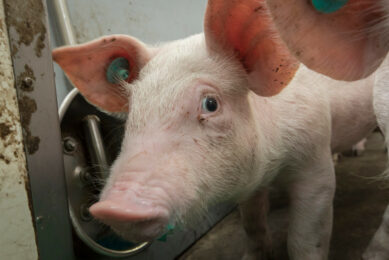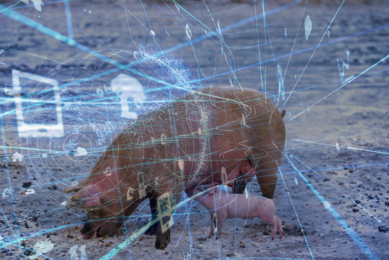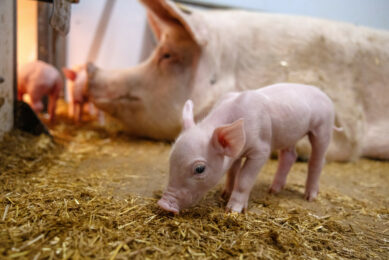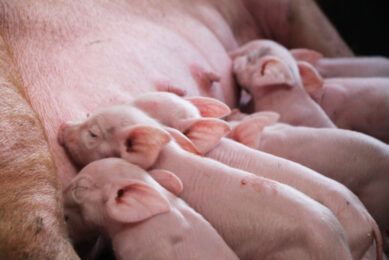Nursing 15 piglets? Sows can do it
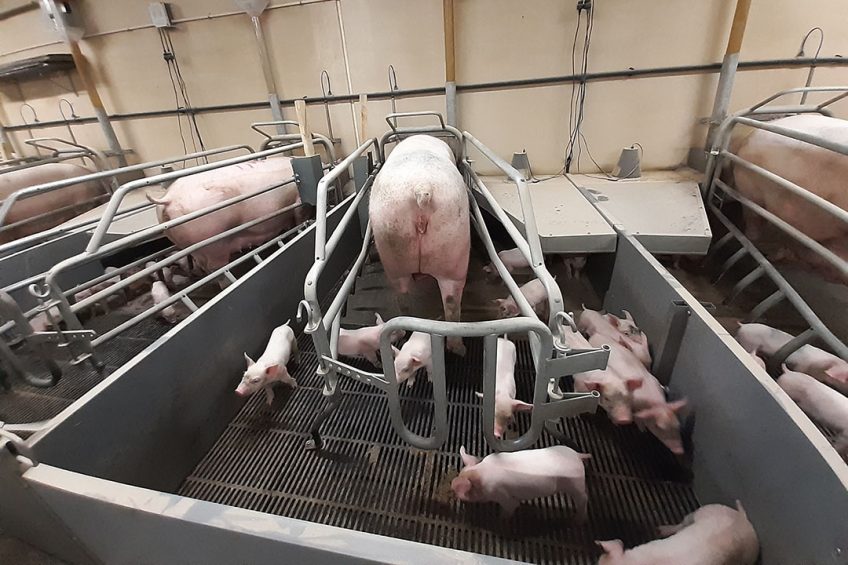
Sows can achieve a lot, but is it possible to quantify the potential of nursing piglets? Recent Danish research put sows to the test – and they passed it. Housing and welfare expert Vivi Aarestrup Moustsen explains how that went.
That sows have a great potential to nurse piglets is no news, it can be read for instance in a previous expert opinion in Pig Progress.
The extent of that potential was further illustrated recently by results in a trial at SEGES Danish Pig Research Centre (DPRC), where litters at sows with 14 or 15 teats were equalised to 15 piglets.
Trial set-up with sows and piglets
Piglets and litters were weighed and backfat of sows measured. If a piglet died or was removed during the following 21 days, the date was recorded and the piglet weighed. At 21 days (D21) after start of trial (day 1 (D1)) litters were weighed again, piglets weighed and counted, and sow backfat was measured (scan at P2).
The hypothesis was that in litters with 15 piglets at equalisation, there would be a difference in number of piglets at day 21 of at least 0.7 piglets when comparing litters of sows with 15 functional teats with litters of sows with 14 functional teats. But that was not the case. There were no significant difference in number of piglets at day 21 or litterweight at day 21.
Sows gave birth to 19 liveborn piglets/litter
The trial was conducted in a Danish commercial herd with 600 sows with on-farm recruitment of gilts based on DanBred-genetics. The sows gave birth to an average of 19 liveborn piglets per litter. Sows were fed 3 times/day and piglets were given dry feed from 1 week of age, but no supplementary milk.
The trial showed that the sows’ potential to nurse is high and instead of moving surplus piglets to nurse sows, more piglets can stay in the same litter which is beneficial for both their health and weight gain.

Read more Expert Opinions in our special section at Pig Progress



